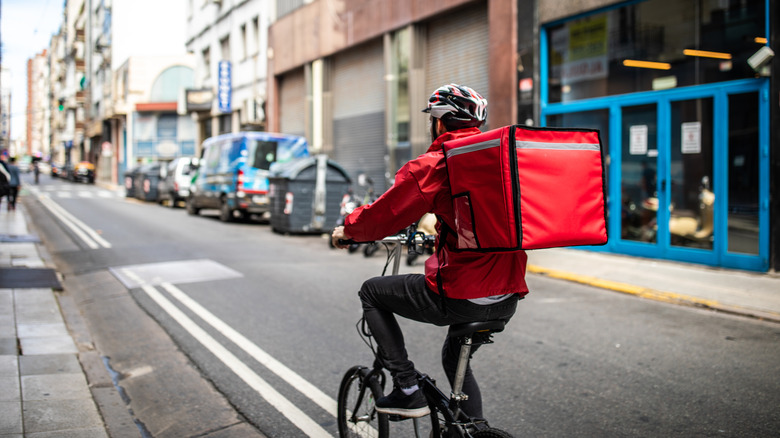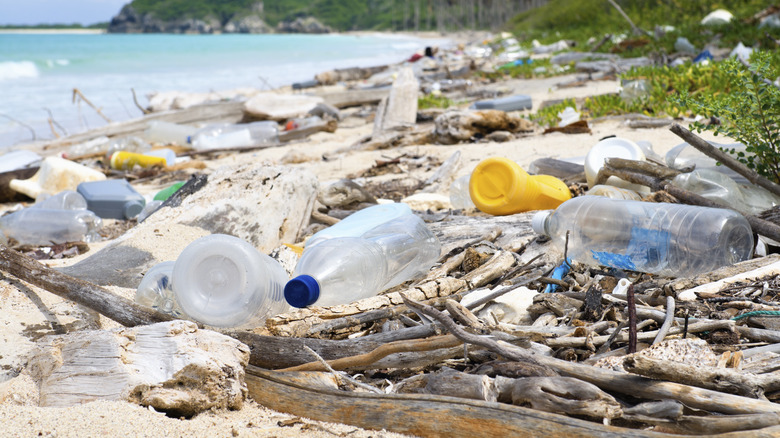New Yorkers Will Now Have To Request Utensils With Food Deliveries
If you live in New York, your collection of plastic utensils may be getting a little bit smaller as a new law says restaurants may only include forks and knives with food delivery orders if the customer specifically requests it. That may seem like a very specific, targeted law, but it's actually part of New York's "Skip the Stuff" bill that was signed earlier this year and aims to cut down on plastic waste in the city. Under the new law, all food delivery apps must have no utensils as the default option, although customers can still choose to have them included. Signaling support for the bill earlier this year, a spokesperson for the mayor said, "New York City has long been a leader in the fight to reduce the use of single-use products ... This is an important step to reduce consumers' personal waste impact."
However, utensils are not the only thing affected by the law, as sauce packets like ketchup, and napkins, are included in the bill. This doesn't mean New Yorkers won't be able to get hot sauce with their delivery, just that customers will need to actively request them, a change that will surely take some getting used to. Restaurants can be fined $250 for each time they don't comply with the law, although currently, they will just receive a warning, and fines won't begin until July 1, 2024.
Combating plastic waste has been a big issue in cities recently
According to the mayor's office, 36 million pounds of single-use plastic related to food was gathered from the city's residential waste in 2019, which shows the scale of the problem (per NBC New York). Humans produce over 440 million tons of plastic waste globally each year, of which 36% is single-use items like plastic utensils. In fact, the U.S. alone is estimated to throw out almost 40 billion plastic utensils every year, much of which ends up in oceans, where it can stay for centuries before degrading. Plastic in the ocean not only kills millions of marine animals each year but can end up being ingested by humans as well. These numbers have inspired cities all over the country to start tackling plastic waste in the last few years.
Los Angeles County banned food vendors and restaurants in unincorporated areas from using single-use plastics last year, with full-service restaurants required to provide reusable utensils. San Diego also banned styrofoam packaging and has made single-use utensils request only. Internationally, cities like Paris and Melbourne have banned plastic utensils, plates, and straws entirely in the last few years. Given the massive scale of the plastic problem and the potential environmental and health implications of plastic waste, it should be expected that we will see even more of these bans in the coming years.

